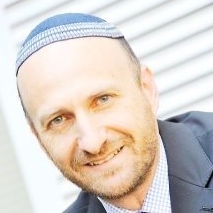
Voices

The challenges involved in dealing with anti-Semitism
SHAUN ZAGNOEV
The terms of the agreement were formally concluded at a meeting between the parties and their respective legal representatives, held at the offices of Ian Levitt Attorneys. In terms of the settlement, the two young men who had posted the offending comments would apologise in person to the complainants, sign a letter of apology that would afterwards be made public, and undertake within a designated period to participate in a sensitivity training course at the Johannesburg Holocaust & Genocide Centre.
On this basis the Board, together with the administrator of the WhatsApp group who had been personally attacked, would withdraw the charges of crimen injuria and intimidation that had been laid.
Going into the meeting, we were not sure what to expect. While we did not anticipate any real difficulties in terms of confirming the practical aspects of the agreement, we were not at all sure what the attitude would be of those we would be meeting across the table. Would the guilty parties display sincere contrition, or would it emerge instead that they were simply backing down under duress? Would we see an unequivocal acknowledgment that what had been posted was unacceptable, or would it be a case of, “Yes it was wrong, but…”?
As it turned out, we were genuinely affected by the obvious remorse displayed by the young men concerned, as well as by the distress over what had happened displayed by their fathers and legal representatives.
One of the themes that emerged in the discussion was that we must not allow incidents of this nature to sour relations between the Jewish and Muslim communities, and indeed, to remember how much Jews and Muslims have in common in terms of their respective religious heritages. It was in this spirit that the meeting was conducted, and which enabled us all to walk away as friends.
In approaching this case, the Board took a decision to seek maximum publicity for what had happened and what it was doing in response. Our intention in doing so was certainly not to create the impression that Jews were victims, but on the contrary, to send out a strong message that our community’s rights cannot be violated with impunity and that, if necessary, those guilty of such conduct will be made to answer for it.
This may involve dealing with once-off, impulsive incidents of anti-Semitic behaviour, as was the case with the matter dealt with above, or more serious cases of persistent hostility on the part of those clearly bent on pursuing an anti-Semitic agenda.
The challenge we always face is to assess which cases require our response, and what kind of outcome we want to achieve in the matter that we do decide to take up.
Realistically speaking, it is not possible to respond to every single instance of anti-Jewish bigotry that comes to our attention (today, overwhelmingly originating in the social media space).
However, when we do take action, we make sure to see it through, no matter how long it takes or how many practical difficulties we are confronted with along the way.
- Listen to Charisse Zeifert on Jewish Board Talk, 101.9 ChaiFM every Friday 12:00 to 13:00.




